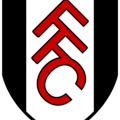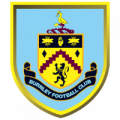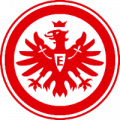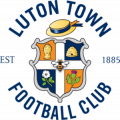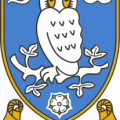Diego Armando Maradona
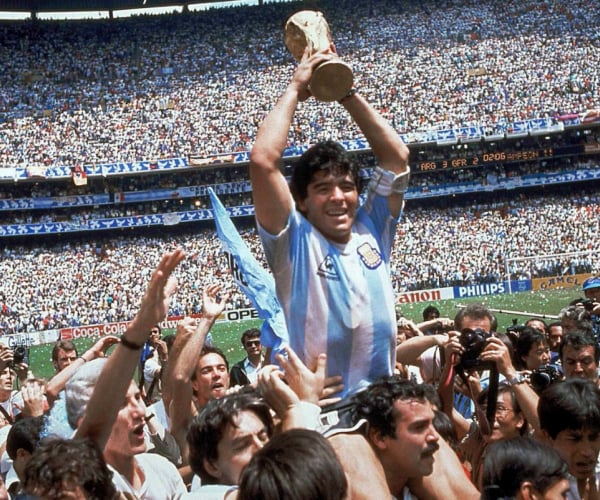
1960 Lanús, Buenos Aires
Diego Armando Maradona is a former footballer who is considered by experts in the history of soccer as the best player in history. He was born on October 30, 1960 in the city of Lanús in the province of Buenos Aires in Argentina and died in Dique Luján, Tigre, also in Argentina, on November 25, 2020. His death caused a great commotion throughout the world and acts of tribute to his career and admiration for his talent for this sport took place throughout the world.
Predestined
Maradona used to say that he was born in a "private neighborhood. Deprived of water, deprived of electricity, deprived of telephone". The irony with which he remembered his childhood masked its harshness. Villa Fiorito was a suburb of Buenos Aires, where growing up was complicated and becoming a winner, a utopia.
"I was born in a private neighborhood: deprived of water, deprived of electricity, deprived of telephone..."
But little Diego was different. "A miracle," in the words of Francisco Cornejo, his first coach, the one who signed him for Los Cebollitas when he was barely ten years old. His weak appearance, his short stature and his lost look ceased to be impediments when that little boy caressed the ball. That's what Maradona did. That's what he did all his career. Stroke the ball. A relationship of affection cultivated since his earliest childhood, whether it was spherical, or a piece of rag molded from scrap metal, or any of the oranges he used to touch without breaking them. Sweetness. That team would become a childish steamroller, accumulating 136 undefeated games. Dieguito was the artist in all his extension. The kid used to liven up the breaks of Argentinos Juniors' matches with his juggling and his skill was such that it was commented in the newspapers' chronicles. That little phenomenon also knew the bitterness of soccer when Los Cebollitas lost in the semifinals of the national youth tournament. He was crying inconsolably when a teammate came up to him and wiped his tears and told him: "Don't cry Diego. Someday you will be the best ten in the world". Destiny.
"No. Not like my brother. My brother is a Martian, you can't argue". This is how Huguito, the youngest of Diego's little brothers, answered when he was asked if he wanted to be a footballer and if he would like to be like him. In that interview, a teenager Maradona said that his dream was "to play a World Cup with Argentina and win it". At the age of 15, Maradona from Fiorito was already relatively well known in the country, especially after making his debut in the First Division with Argentinos Juniors. His progression was meteoric.
Menotti: Stones in the road
Maradona experienced firsthand one of the great historical dualities of Argentine soccer. Menotti and Bilardo. Bilardo and Menotti. Two world champions and two ways of understanding the game. El Flaco gave him the chance to make his debut when he was only 16 years old. His abilities were already a reality every Sunday when he put on the red shirt of Argentinos Juniors. Diego was about to follow in Pele's footsteps and play in a World Cup at the age of 17, but the coach did not include him in the squad that won the World Cup in 1978. That hurt Diego, but above all it motivated him.
"You're a chubby barrel: you'll never be able to score a goal for me," Hugo Gatti to Maradona, before he scored four goals.
On several occasions in his career, Maradona showed that when he combined determination and conviction with his colossal talent, he simply made the impossible possible. It happened in '86, it happened at Napoli and it happened in a Boca - Argentinos Juniors match. The day before, the xeneize goalkeeper, the legendary Hugo Gatti, said: "You're a chubby barrel: you'll never be able to score a goal for me". On the pitch, Diego's rage turned into magic. A magic that killed the goalkeeper who seemed to have earned the nickname of "El Loco" (The Madman). Four goals were scored by the chubby barrel. Maradona was 20 years old.
But before that, after being ruled out of the '78 World Cup, El Pelusa vowed never to suffer such a disappointment again. The following year he began a three-year period in which he was top scorer in the Argentine league. Menotti did call him for the World Youth Championship in Japan, in the summer of that year 79, which many consider the beginning of an irremissible growth, year after year. Up to the sky. His superiority was insulting. He led his team to win the championship and won the best player trophy.
El Flaco had learned his lesson. That kid was an undeniable phenomenon, who would never again be left out of the Albiceleste. The World Cup in Spain awaited and Argentina defended the title. But the lack of understanding between Menotti and Maradona continued in 1982. The coach placed Diego as a striker, thinking that the goal-scoring ability he had shown in La Liga would be better used as a spearhead. The unnatural decision was completed by the position of Matador Kempes, in the center of the field. Neither Argentina nor Maradona were able to shine and were eliminated at the hands of the Super Brazil of '82. Diego's frustration at not playing the ball as much as he would have liked resulted in a self-expulsion in the match against the Canarinha. It was a thorn in his side that would take him four years to get rid of.
Between love and hate
After the Spanish World Cup, Maradona, who had already won La Liga with Boca Juniors and had everyone agreeing that he was the best Argentine player, signed for FC Barcelona for the exorbitant sum of 1.2 billion pesetas at the time. But things never really took off in Barcelona. Shortly after his arrival, hepatitis left him out of action for three months and when he returned, the team could not finish higher than fourth place. Along the way, he had time to score a masterpiece at the Bernabéu that earned him a standing ovation from the fans of the eternal rivals. Juan José hit against the post, collateral damage of his magic.
"It doesn't matter that he was born in Argentina, Maradona is Neapolitan", Luciano de Crescenzo.
Maradona's prodigious talent was beginning to sting among rivals. In the Spanish league began the violent and inhuman markings to which he was subjected throughout his career. Physical and verbal violence. The word "sudaca" was a constant in the ears of the genius. It was Goikoetxea who exemplified this new reality, with a chilling tackle that could have retired the ten from soccer forever. Kicks out of place were all too common, inconceivable in modern soccer. If Messi was kicked half as hard as Maradona, even half as hard, no team would be down to eleven.
Diego was not at ease and Barça wanted more. That relationship ended prematurely, in the second year, and El Pelusa set sail for Napoli, to a team that had escaped relegation by a single point. Towards unconditional love. Towards the altar.
"Maradona non si discute, si ama". The original phrase spoke of the city of Naples, but the arrival of the sky-blue messiah quickly adapted it. It was a crush. A passionate, reciprocal, unique love. Diego aroused madness among the Neapolitans, who saw in their god the only one capable of leading their modest team to touch metal.
"It doesn't matter that he was born in Argentina, Maradona is Neapolitan". This is how the writer Luciano de Crescenzo summed up Diego's relationship with Naples. Pure passion. His exorbitant talent made the impossible possible (once again) and led a modest team to win two Scudettos and a UEFA. Unparalleled.
Doubts, doubts and more doubts
The criticisms that Messi suffered in Argentina for not being at his level with the national team are well known. It is not surprising, when at the time Maradona was also criticized for the same reason. The months leading up to the '86 World Cup brought a trail of ink in the Argentine media questioning Diego's ability to be a differential factor for his national team. A knee injury put his participation in the tournament in jeopardy and, despite the fact that many accused him of wanting to play himself out, El Pelusa underwent several extractions of synovial fluid from his joint. Diego wanted to be there. Diego was going to be there.
"Maradona is not what he used to be", Menotti before World Cup 86.
But the criticism was not only coming from the press. César Luis Menotti appeared on the scene again, to say openly that he believed that the decline of the ten had begun: "Maradona is no longer the one he used to be". Prophetic, El Flaco. In an interview to a German newspaper, the former Argentine national coach fanned the flames of controversy about Diego, accusing him of being a bad professional, of having lost the illusion of playing and of being at the beginning of the end. He is 25 years old. The parallel with Messi is brutal.
But if someone did not doubt Maradona, it was Bilardo. El Narigón was determined not only to take him to Mexico and make him his franchise player, but also gave him the armband dreaming that Diego would lift the World Cup. Surely not everything that happened in the tournament was part of his dreams. And certainly not in those of the press and fans either. The coach's determination brought him numerous editorials criticizing him and, of course, Maradona, who was considered incapable of pulling the Albiceleste's cart.
Maradona and ten others
In the midst of a rarefied atmosphere, with the coach and captain under fire, Argentina started Mexico 86. In fact, few people thought they would make it past the Round of 16 or the quarterfinals. But those ordinary players had a clear idea. They had faith. Faith in Maradona. Never had a system of play been so simple. Everyone to work and give it to Diego to invent. Then, God will provide. Never better said.
Argentina started against South Korea and it soon became clear that their game lacked the rhythm and resources to go far in a World Cup. A team as weak as the Asians made it difficult for the Albiceleste, who relied on the magic of their captain. However, Maradona's physical problems, aggravated by a festival of kicks and unsportsmanlike actions by the Koreans, did not allow the Pibe de Oro to show all he had prepared for the final rounds. Nevertheless, Diego gave a glimpse of what he was capable of: three assists in Argentina's three goals that made the final score 3-1 and put the first victory in the bag.
The next opponent in the group was the world champions of the time. Italy started as clear favorites, but their opening draw with Bulgaria had put the Azzurri on the back foot. Nevertheless, Italy's competitive spirit showed up in the big moments. Just as Gentile managed to nullify Maradona at Spain 82 with some borderline-legal marking, the Italian defense was confident of doing it again, with Bagni and Bergomi keeping an eye on the genius.
The game was soon in the Blues' favour as they took the lead from a penalty. It was the perfect scenario: a lead on the scoreboard and then it was time to defend. It was then that Maradona really came into his own at World Cup 86. Diego wanted every ball. He went, he came, he played first touches, he commanded. The Napoli team-man had appeared. Diego's main virtue was to make his teammates better. He was there and Argentina no longer looked like an ordinary team. That was the constant throughout the tournament.
Maradona scored the first of his five goals against Italy, the one that meant the equalizer. A breakaway move into space and a subtle touch to finish. The point seemed to be worth it for both teams and the score remained unchanged. On the last matchday, Argentina defeated Bulgaria 2-0 with another Diego assist.
River Plate derby: the festival begins
If there was any doubt left in the Argentine press that Maradona was the best player in the world, it was dispelled after his outstanding performance in the Round of 16 against Uruguay. A match of high tension, between two perennial enemies. Although the Albiceleste came in as favorites, anything could happen against a Uruguay side featuring the great Enzo Francescoli.
"When Maradona works, we all work", Pasculli
"When Maradona works, we all work". Pasculli, scorer of the only goal in the victory over Uruguay, was so categorical that he added: "It may have been Maradona's best game with Argentina, but it won't be better than the next one". It was clear to his teammates. Diego was the lighthouse, he was the guiding light. And against Uruguay his display was incredible. Appearing all over the field, from one side to the other, making the right decisions. Playing easily when required and accelerating to unbalance. Two prodigious actions of his ended in assists that Valdano and Pasculli himself did not take advantage of. A free kick against the crossbar, his best chance. The surgeon's precision of his left foot continued to amaze. He seemed to be from another galaxy.
The uncertainty had disappeared. Maradona was the man. The Argentine press spared no praise for the ten, who was finally put on the same level as the rest of the planet saw him: the best player in the world.
"Cosmic kite, what planet did you come from?"
Maradona's interplanetary origin was questioned in the quarterfinals by Victor Hugo Morales, Argentine narrator who told like no one else the best goal in history. But the time is not yet ripe.
Argentina reached the antepenultimate round and there they met England. Perfect excuse to feed the patriotic pride and the need to win for the happiness of a country. It was the first time that Maradona was in that situation so used by the power, which put him as the savior of the country to turn his back on it eight years later in USA 94.
Only four years had passed since the Falklands War and the match took on dramatic overtones of national revenge, despite the fact that those boys were only footballers. The circle of hatred continued to turn and the match became a nonsense. Hooligans and Barras Bravas were right in the thick of it, with pitiful images of rival flag burning before the match. Fortunately, common sense prevailed in both teams. The two stars were clear that this was just soccer and refused to fan the flames ignited by the sensationalist press. Lineker, the tournament's top scorer, was categorical: "I'm a footballer, not a politician," he declared, shrugging off the controversy. But Maradona was even clearer, appealing to common sense before the match: "We will not go out onto the field with weapons. We came here to play soccer, and that is what we will do. This is a sporting World Cup, not a battle.
On the sporting side, things were clear. England had a really solid team and Argentina, although they had a Maradona who had dazzled, had only come up against one major rival: Italy, with whom they drew. There was uncertainty as to how the Albiceleste could respond against a superpower and in a final round. The players knew it was the game. Maradona knew it was the game.
"Of any of the sixteen teams that made it to the round of 16, the one with Maradona would be world champions." That's how simple Emilio Butragueño, who is not exactly known for being an impulsive and visceral person, saw it. That's just the way it is. It is customary to say that Maradona "single-handedly" won the World Cup in Mexico. Diego went up a step. From being a tireless dribbler, a differential factor, an unbalancing player, he rose to the status of a total footballer. He did everything and he did it well.
The tension was palpable at the Azteca. The fear of making mistakes dominated the first half, in which the midfield was very present. Few chances. The Argentines were worried about the English block and the English were obsessed with Maradona, who was not allowed to breathe in the sunshine. In spite of everything, the elusive genius always ended up creating relaxation. His catalog of technical resources, unlimited, always left some detail. A direct free-kick just inches from the English goal was his clearest chance.
"Of any of the teams that reached the Round of 16, the one with Maradona would be the champion", Butragueño.
In the second half came what everyone knows. Two goals from Maradona just four minutes apart. Antagonistic. The first, with his hand, faking a header in front of Shilton, which infuriated the English. For many years, Diego denied having scored with his hand, claiming that in such a case it would be the "hand of God". Faced with this affront to fair play that British players and journalists were talking about, Maradona decided to settle the matter by scoring the best goal in history. Starting from his own half, he left half of England in his wake, including the goalkeeper, in a prodigious ride with the ball always glued to his left foot. Diego touched the sky, while the narrator Víctor Hugo Morales cried, impressed by what he had seen. It was real, Maradona had left Reid, Beardsley, Butcher, Fenwick, Stevens and Shilton lying on the ground. The Azteca was falling apart. It was real, Maradona was the best.
On to glory
Despite Lineker's late flare-up in the final minutes, Argentina held on to advance to the semifinals, where the big surprise package awaited: Belgium. The Red Devils had played a great World Cup, with their fast and vigorous soccer. But there was no one to stop Maradona. He was chainless. In a new exhibition, he destroyed his opponent again. Two goals for a 2-0 lead that put Argentina in the final. The first one, with a fantastic movement into space and a precise definition. The second, one of those that history has come to call Maradonian. Starting from the three-quarter line, with the ball glued to the ball, freeing everyone who came his way and scoring at the last moment when it seemed he was going to go down. Diego was no longer simply the best player in the world. His displays were the finishing touch to a spectacular career. And he was only 25 years old.
"If Maradona had played in Belgium, we would have won 2-0. That's the difference." "If I had Maradona in my team, we'd be finalists." Both Belgian defender Gerets and his coach Guy Thys agreed in their analysis after the semi-final. Everything was too simple with Diego. There were no tactics, no approach, no situations he could not overcome. In '86, Maradona was the difference. To have him or not to have him marked victory or defeat.
And then came the final. And "Germany is always Germany". And they say it was Maradona's worst game in his World Cup. It didn't matter. Diego was always there and in the final match he was there too, although playing a different role. Coach Beckenbauer knew that knocking out the Argentine ten was a direct ticket to the Cup. That's why he had no qualms about sacrificing a star player like Mathäus in order to tie Pelusa up for the full 90 minutes. A sticky, insistent, tenacious and very aggressive marking. Gentile's in 82. But Diego was no longer the boy he was four years ago. His maturity and tactical intelligence were the key to turn the tide for Argentina.
"If I had Maradona in my team, we'd be in the final," Guy Thys
Not just Matthäus. The entire German midfield was obsessed with nullifying Maradona. This situation was magnificently interpreted by the player from Fiorito, who moved back many meters into his own half to leave space for his teammates in attack. Brown and Valdano took advantage of this situation to make it 2-0, a result that put the Cup within reach of Argentina's fingers.
But the momentum changed. Germany went all out on the attack. Germany was Germany. First Rumennigge and then Vöeller levelled the match. The Germans were determined to complete the comeback. Perhaps that's why they forgot their obsession: to hold the little genius from Buenos Aires at bay. And after marveling the entire planet for a month, it seemed logical that in the final, with the match tied and everything still to be decided, Maradona would appear, didn't he?
Little by little he grew more and more in the match, with more ball, closer to the rival area, and in a moment of magic, with a touch of his scalpel he left Burruchaga alone in front of Schumacher. The Argentinean made no mistake. 3-2. World Champions.
Straight to Olympus
A dream come true. To play in a World Cup with Argentina and win it. I had achieved it. Far beyond any expectation, beyond any optimistic prediction. Maradona had won the World Cup practically alone. Maradona had managed to turn ordinary players into champion warriors. Maradona had transcended his category. He was in heaven.
It didn't matter that his career ended on June 29, 1986, he was already a legend. However, he still had to transfer his magic to Napoli to make them Calcio champions the following year. 40,000 season ticket applications were registered by the Neapolitan club after the '86 World Cup. With the national team, Diego was runner-up in Italy and left out of USA 94 by FIFA, in a doping case that was never fully clarified and before which the powerful who once praised him, left him alone and abandoned.
"Don't cry Diego. Someday you will be the best ten in the world", prediction of a teammate at the age of 10.
With everything and in spite of everything, Maradona is already an icon in the imaginary of the soccer world. A target of love, of unbridled passions, of words full of admiration from great players. Also of hatred, for his life outside the fields and for his persistent refusal to side with power. But Diego never belonged to the offices. Diego was always for the people, for the ball, the one he defended in tears on the day of his farewell: "Even if I have done bad things, soccer doesn't have to pay for it. I made a mistake and I paid for it. The ball is not stained". That World Cup in 1986 was the climax, the pinnacle of his magic in an unforgettable career, full of heroics of the small against the powerful. The story of a dream come true. The story of making the impossible possible. The story of the greatest player of all time.
Oh mamma mamma mamma mamma
oh mamma mamma mamma mamma mamma
sai perche' mi batte il corazon?
Ho visto Maradona
Ho visto Maradona
eh, mamma', innamorato son.









